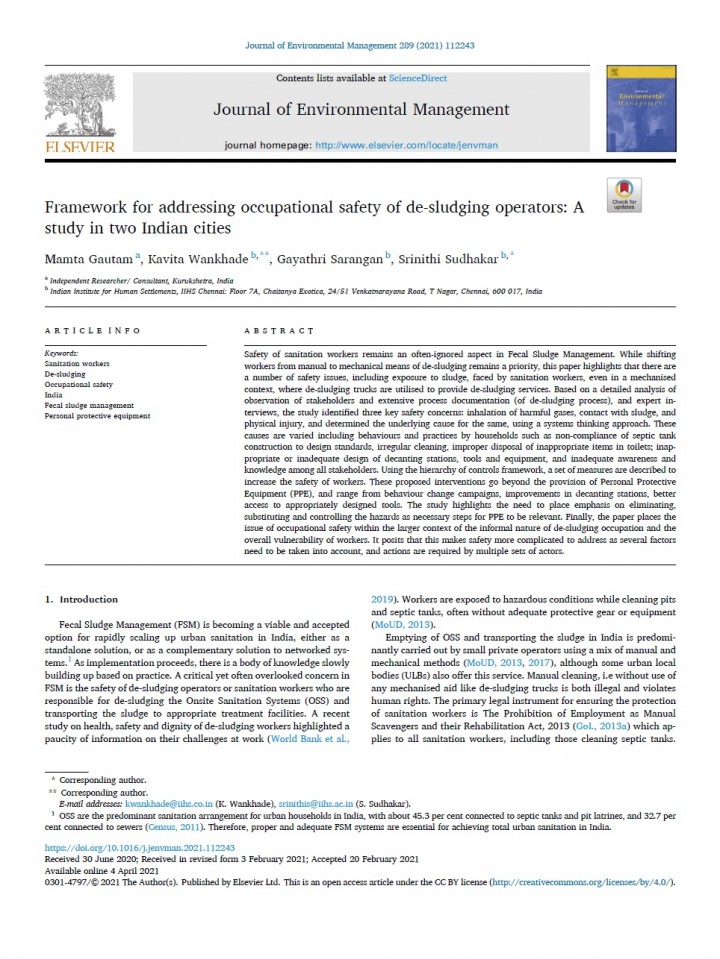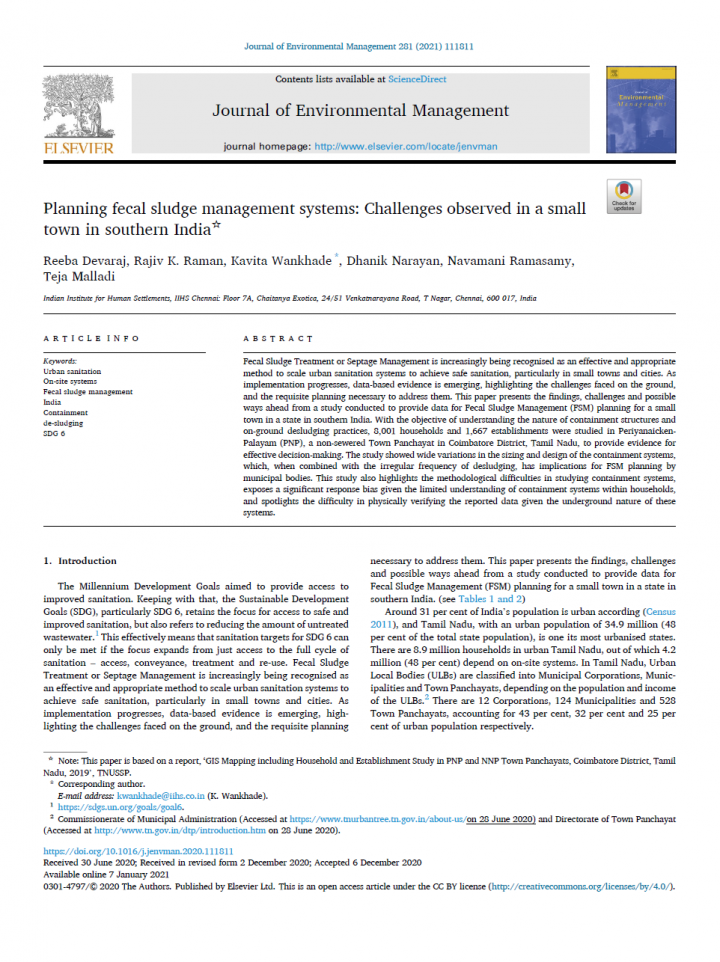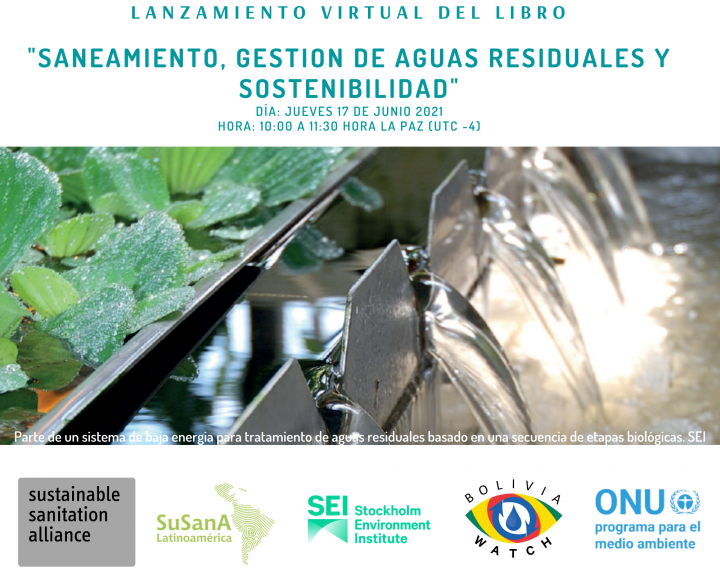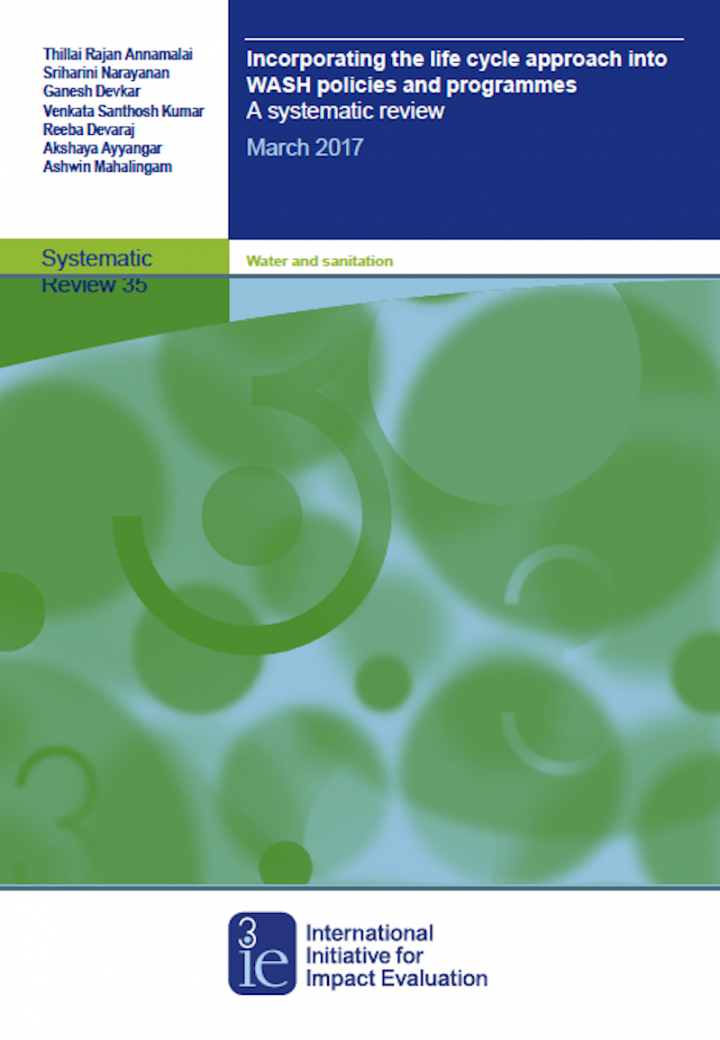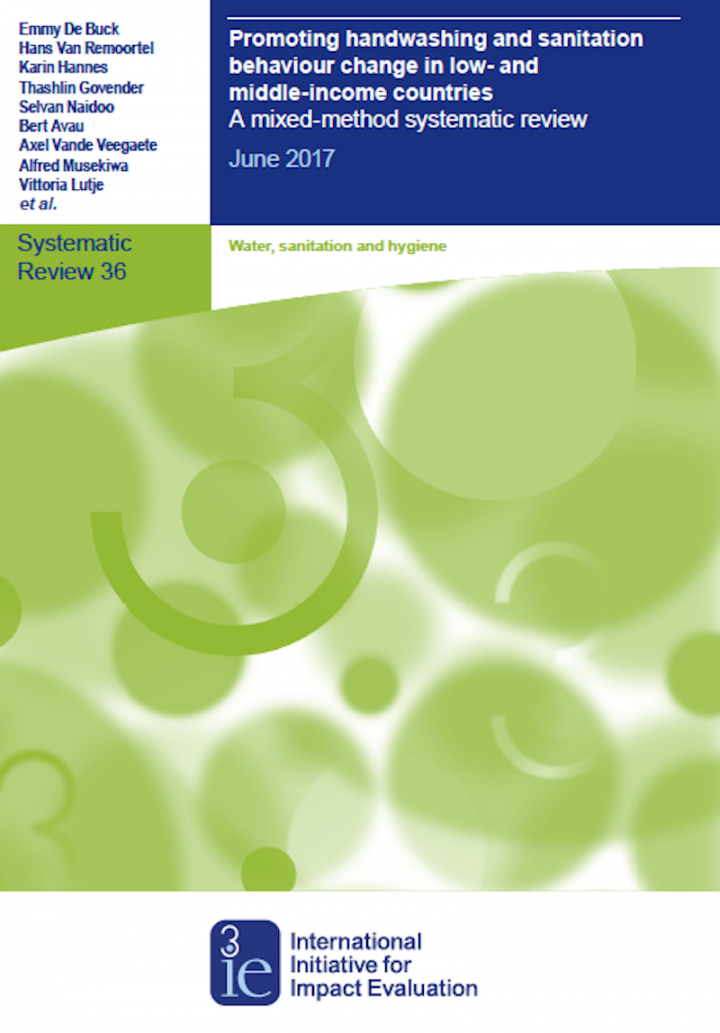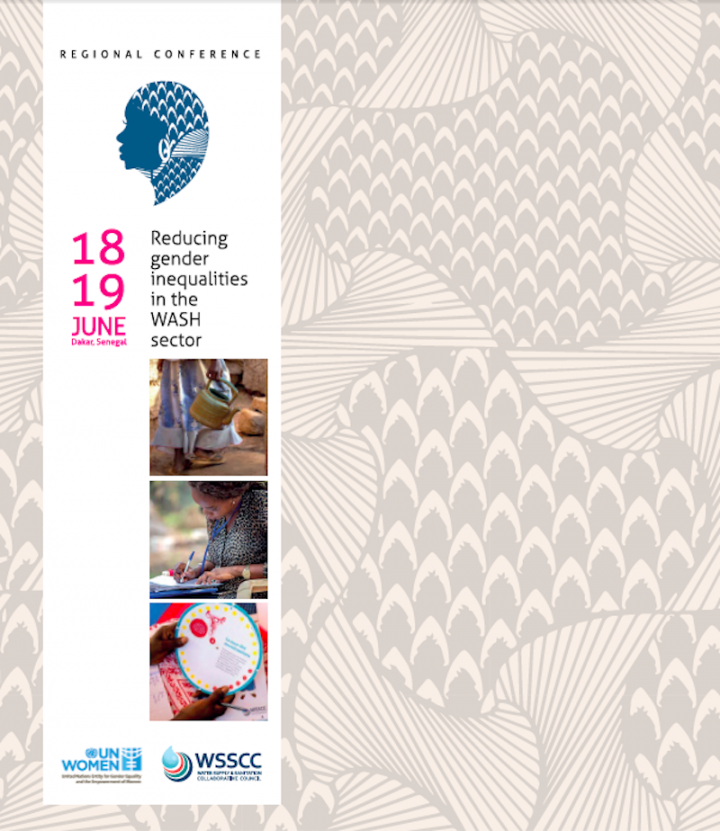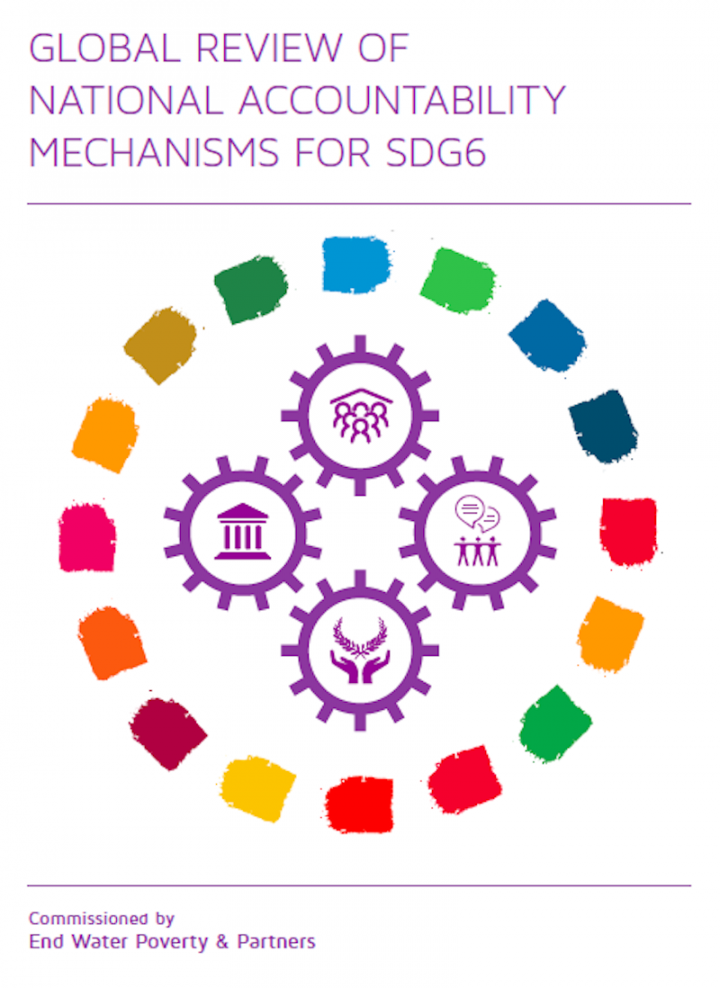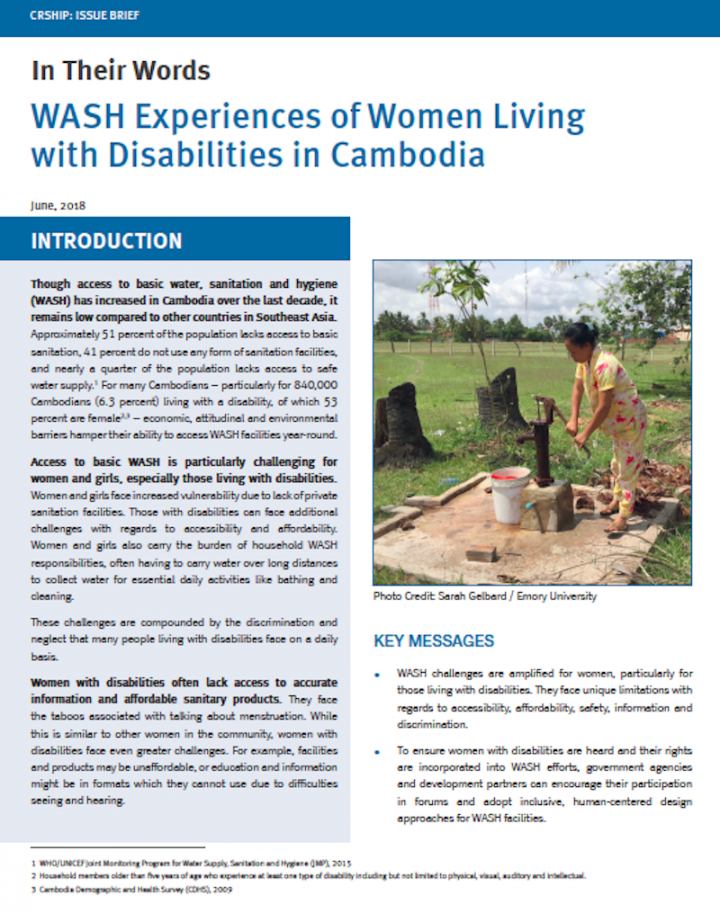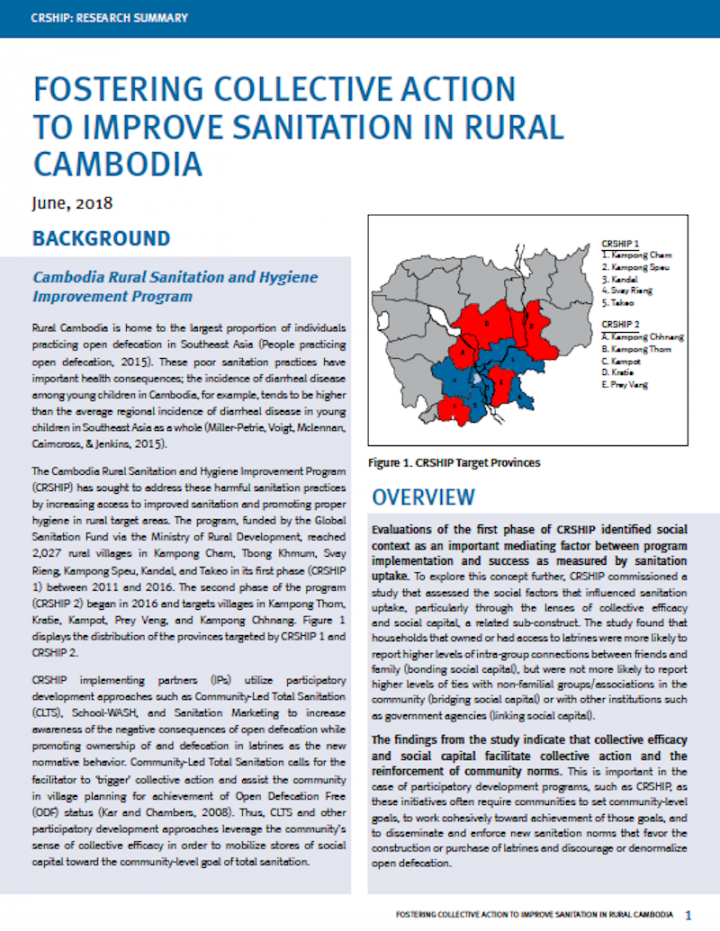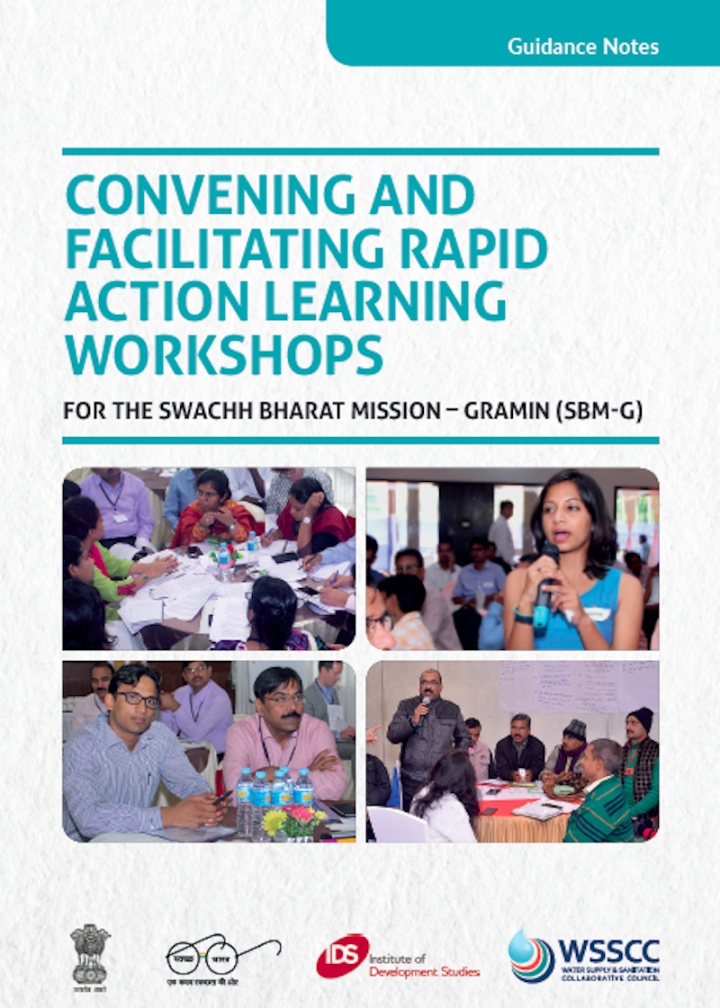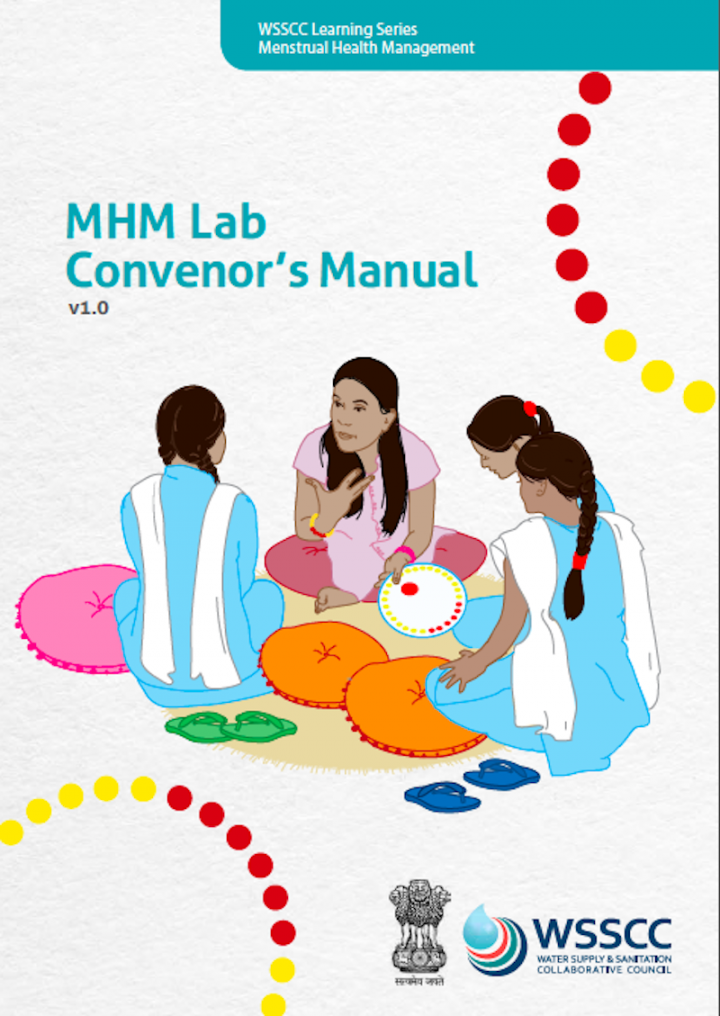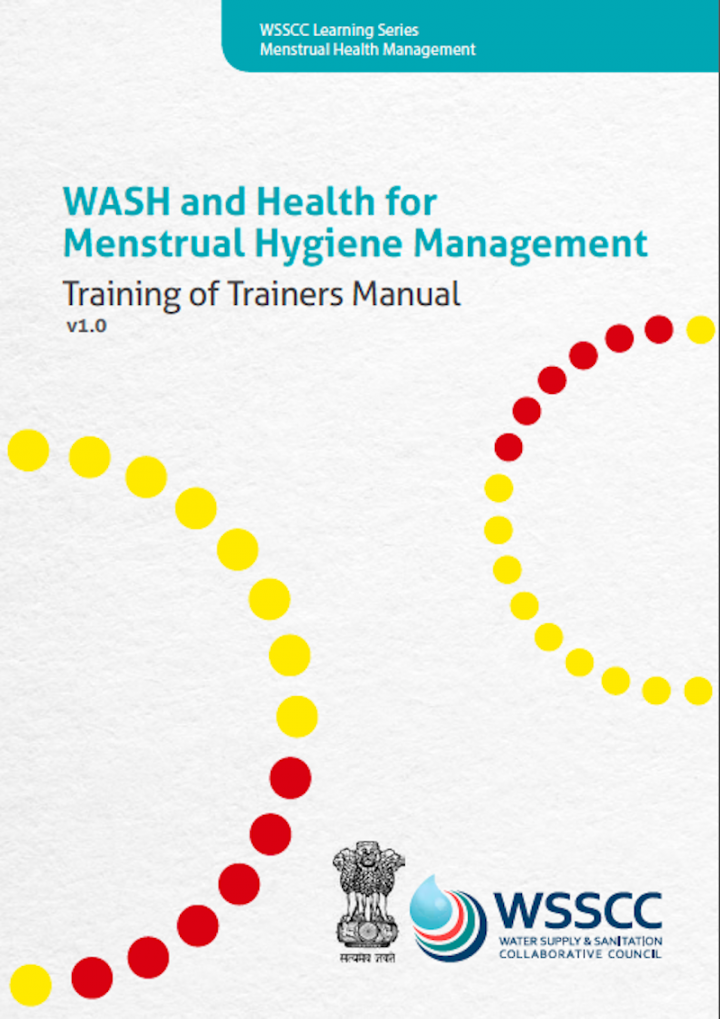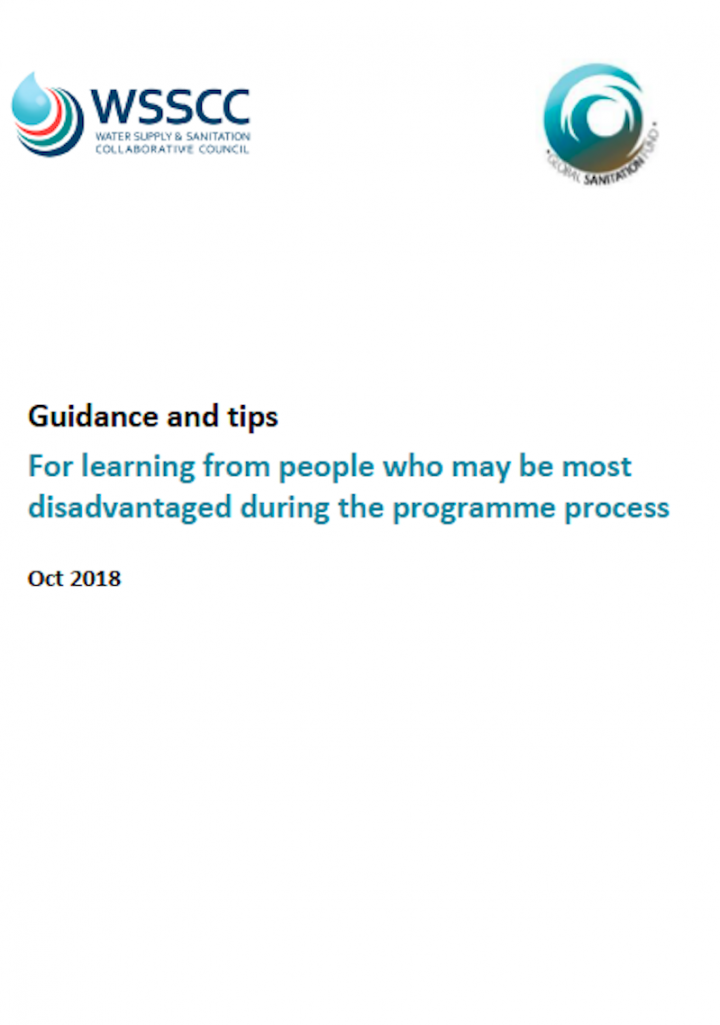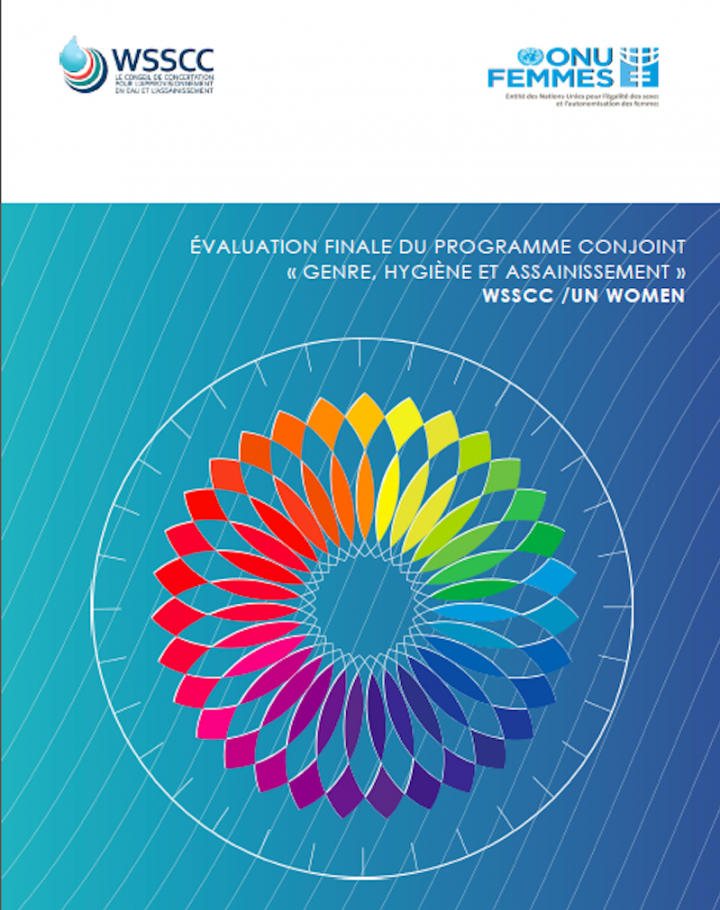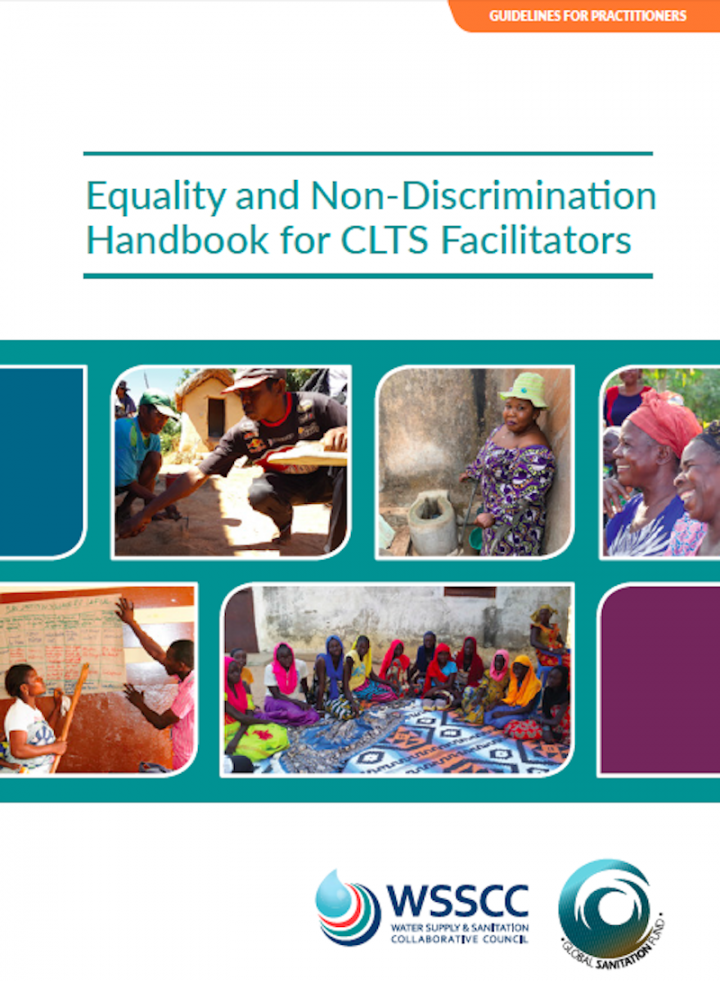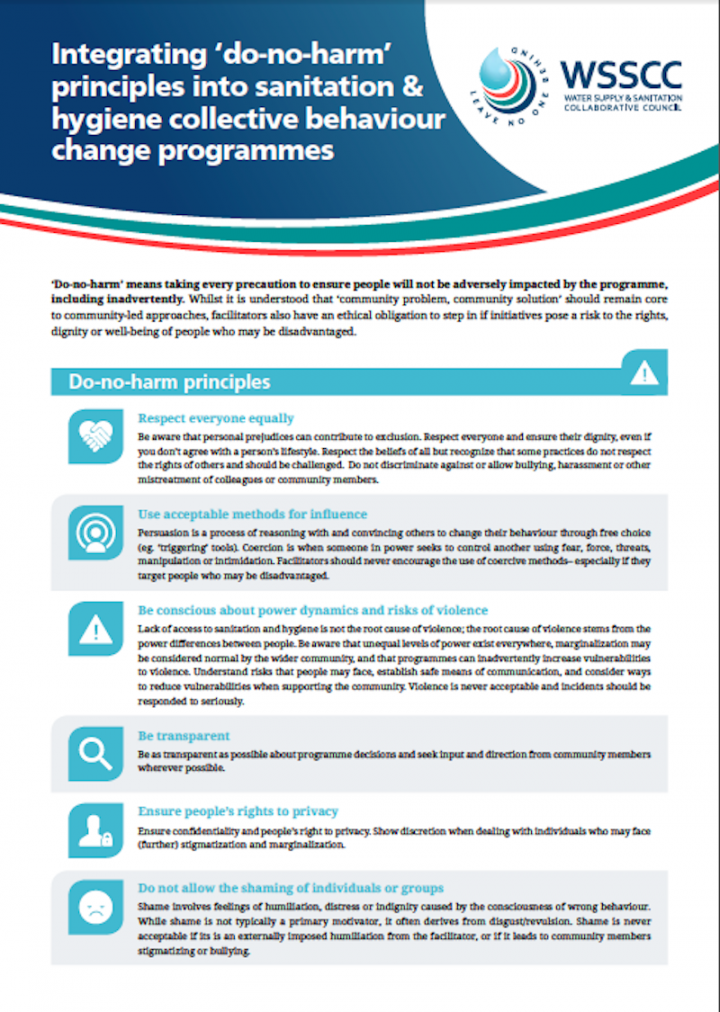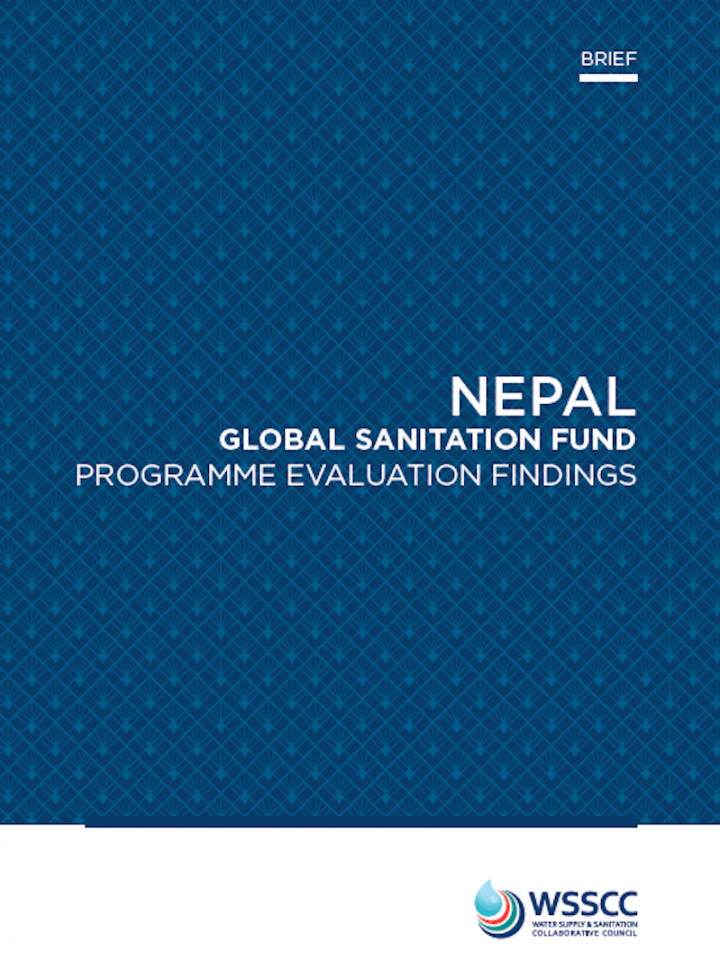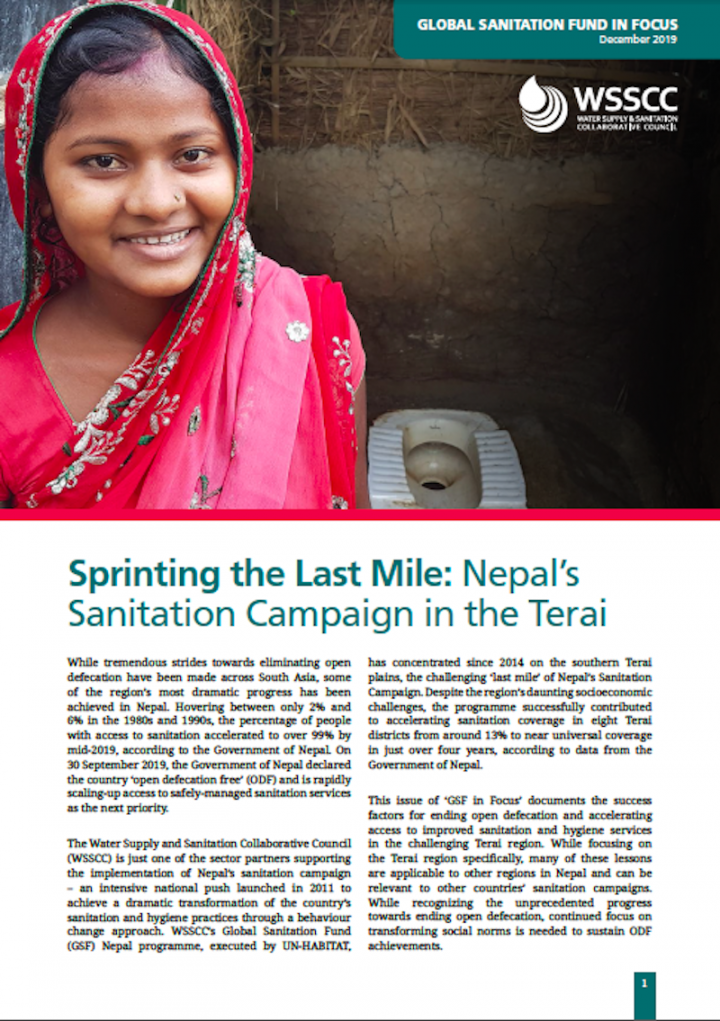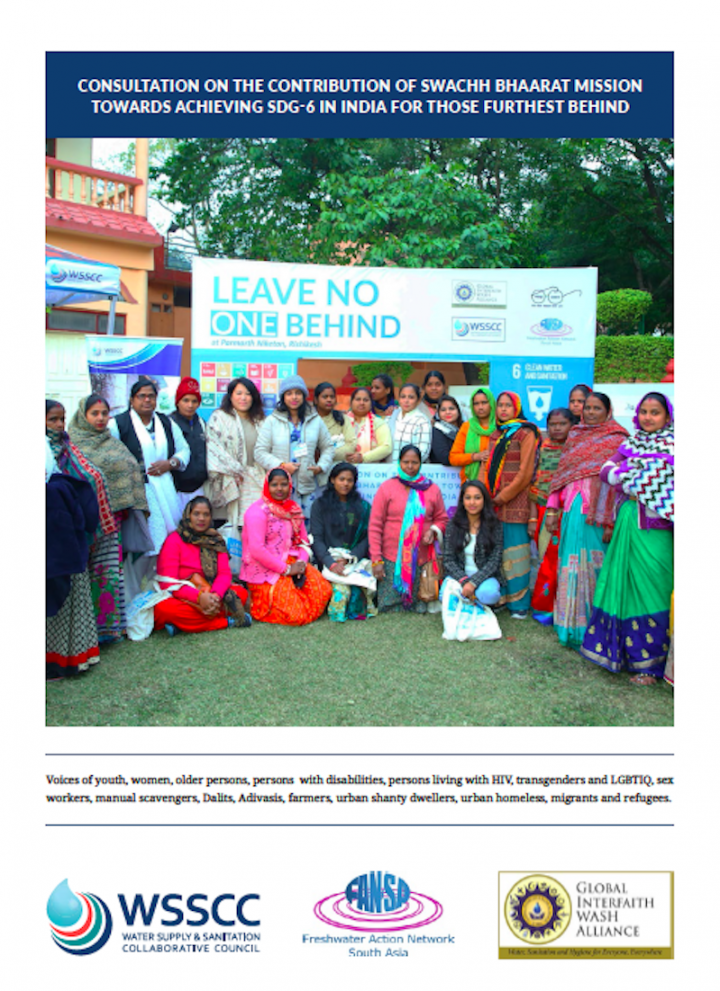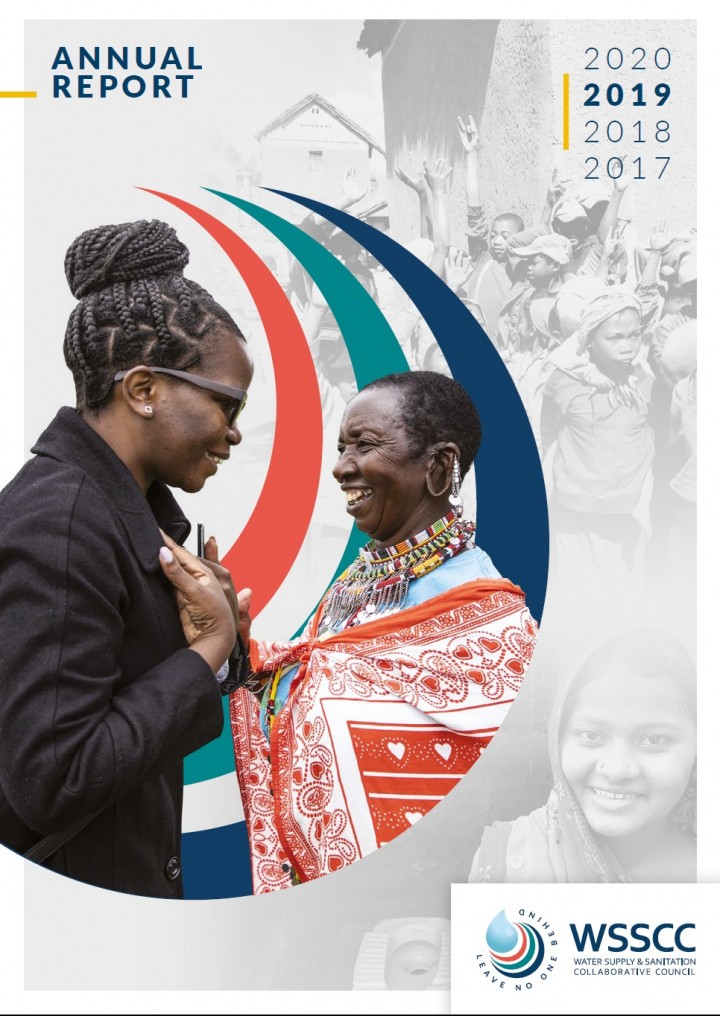Gautam, M., Wankhade, K., Sarangan, G., Sudhakar, S. (2021) Framework for addressing occupational safety of de-sludging operators: A study in two Indian cities
Safety of sanitation workers remains an often-ignored aspect in Fecal Sludge Management. While shifting workers from manual to mechanical means of de-sludging remains a priority, this paper highlights that there are a number of safety issues, including exposure to sludge, faced by sanitation workers, even in a mechanised context, where de-sludging trucks are utilised to provide de-sludging services. Based on a detailed analysis of observation […]
Devaraj, R., Raman, R. K., Wankhade, K., Narayan, D., Ramasamy, N., Malladi, T. (2021) Planning fecal sludge management systems Challenges observed in a small town in southern India
Fecal Sludge Treatment or Septage Management is increasingly being recognised as an effective and appropriate method to scale urban sanitation systems to achieve safe sanitation, particularly in small towns and cities. As implementation progresses, data-based evidence is emerging, highlighting the challenges faced on the ground, and the requisite planning necessary to address them. This paper presents the findings, challenges and possible ways ahead from a […]
Andersson, K., Rosemarin, A., Lamizana, B., Kvarnström, E., McConville, J., Seidu, R., Dickin, S., Trimmer, C. (2021) Saneamiento, Gestion de Aguas Residuales y Sostenibilidad Lanzamiento Virtual del Libro
Saneamiento Gestion, De Aguas Residuales y Sostenibilidad De La Disposicion de Desechos a la Recuperacion de Recursos
Annamalai, T.R., Narayanan, S., Devkar, G., Kumar, V.S., Devaraj, R., Ayyangar, A., Mahalingam, A. (2017) Incorporating the Life Cycle Approach into WASH Policies and Programmes: A Systematic Review
The paradigm for identifying the beneficiaries and understanding their needs and requirements for delivery of WASH services has evolved over time. Initially, governments started with the overarching objective of providing universal access to WASH services. During the MDG period, there was increased thrust to understand the specific needs and requirements of different population segments, in order to ensure equitable access. By addressing the access needs […]
De Buck, E., Van Remoortel, H., Hannes, K., Govender, T., Naidoo, S., Avau, B. Veegaete, A.V., Musekiwa, A., Lutje, V. (2017) Promoting Handwashing and Sanitation Behavior Change in Low- and Middle-Income Countries
Diarrhoeal diseases are very common causes of death in low and middle-income countries. The aim for this systematic review was to show which promotional approaches might change handwashing and sanitation behaviour, and which implementation factors affect the success or failure of such promotional approaches.
WSSCC (2018) Reducing Gender Inequalities in the WASH Sector
Building on a human right-based approach, the Gender,Hygiene and Sanitation (GHS) Joint Programme, implemented by the Water Supply and Sanitation Collaborative Council (WSSCC) and the United Nations Entity for Gender Equality and the Empowerment of Women (UN Women), intends to support governments in assessing their policies, guidelines and budgets to better reflect women’s and girls’ rights and specific needs for water supply and sanitation. The GHS […]
WSSCC (2018) Global Review of National Accountability Mechanisms for the Implementation of SDG 6
This study took place between October 2017 and March 2018 and was led by CSOs in 25 countries under the umbrella of End Water Poverty, Watershed Consortium, Coalition Eau and the Water Supply and Sanitation Collaborative Council (WSSCC). Organisations agreed to conduct an in-depth inclusive analysis on country-level accountability mechanisms towards SDG6 on clean water and sanitation implementation and produce a comprehensive report, assessing their […]
Dumpert, J., Gelbard, S., Huggett, C., Padilla, A. (2018) WASH Experiences of Women Living with Disabilities in Cambodia
There is limited documented information about the WASH experiences of women with disabilities in Cambodia. It is critical to listen to their voices in order to better shape programs and policies, and begin challenging discriminatory attitudes. Greater participation is the first step to ensuring that women with disabilities can access the facilities, services, and products to manage their WASH needs effectively, safely, and with dignity. […]
Salinger, A., Macaranas, R., Dumpert, J. (2018) Fostering Collective Action to Improve Sanitation in Rural Cambodia
The publication voices the importance of social context and collective action as a mediating factor between programme implementation and its success. CRSHIP assesses the social factors that influenced sanitation uptake, indicating the efficiency of communities participating together with local community leaders or NGOs to work cohesively in achieving their S&H goals.
Chambers, R., Mishra, V., Myers, J. (2018) Convening and Facilitating Rapid Action Learning Workshops
Rapid and timely approaches for learning are vital for quality and sustainability. The Rapid Action Leaming (RAL) Workshops outlined in these Guidance Notes are an efficient means for sharing of innovation, good practices and lessons learnt.
WSSCC (2019) MHM Lab Convenor’s Manual
The MHM Lab’s aim is simple: to transform menstruation into a matter of pride and help women and girls stop suffering in silence. By enabling safe and hygienic menstrual management (MHM), as well as safe reuse and/or disposal of menstrual hygiene products, the Lab allows women and girls to regain control of a basic but fundamental part of their well-being. Creating a welcoming yet efficient […]
WSSCC (2018) MHM Training of Trainers Manual
This Manual has been developed for trainers of WASH and for health practitioners, to enable them to speak confidently about an issue that is regularly shrouded in silence, and which impacts upon women and girls health, education and livelihoods. The Manual includes a series of learning units (LUs), which are aimed at teaching practitioners how to improve menstrual hygiene for women and girls. It covers […]
House, S. (2018) Equality and Non-Discrimination: Learning From People Who May Be Most Disadvantaged
A practical guide for the Global Sanitation Fund (GSF) supported programme teams and Community Led Total Sanitation (CLTS) facilitators on how to collect information related to Equality and Non-Discrimination (EQND) at community level, and in particular to learn from people who may be disadvantaged. This guide provides insights into the key ethics principles for information gathering and documentation, offers practical qualitative learning and participatory tools, […]
WSSCC (2018) WSSCC/UN Women Joint Programme Evaluation on Gender, Hygiene and Sanitation from 2014 to 2018 & Response
From 2014 to 2018 the Water Supply and Sanitation Collaborative Council (WSSCC) and UN Women implemented the Joint Programme on Gender, Hygiene and Sanitation. The objective of the programme was to support governments with the design of inclusive and evidence-based policies in the water and sanitation sector with special attention to the needs of women and girls. The programme used Menstrual Hygiene Management (MHM), a […]
WSSCC (2019) Equality and Non-Discrimination Handbook for CLTS Facilitators
The Equality and Non-discrimination (EQND) and Community-led Total Sanitation (CLTS) Handbook provides practical guidance for ensuring that behaviour change interventions leave no one behind. Drawing on experience from across the sector, this handbook is specifically targeted towards those implementing or supervising CLTS interventions at the community level. Key features include a summary of EQND principles, step-by-step guidance on applying these principles during pre-triggering, triggering meetings, […]
WSSCC (2019) 'Do No Harm' Principles in Behaviour Change Programming
‘Do-no-harm’ means taking every precaution to ensure people will not be adversely impacted by the programme, including inadvertently. Whilst it is understood that ‘community problem, community solution’ should remain core to community-led approaches, facilitators also have an ethical obligation to step in if initiatives pose a risk to the rights, dignity or well-being of people who may be disadvantaged. For a more in-depth read on […]
WSSCC (2019) Nepal GSF Programme Evaluation Findings & Response
WSSCC's Global Sanitation Fund (GSF) Programme in Nepal was financed by WSSCC and implemented by UN Habitat Nepal. This evaluation brief seeks to provide a summative and a formative forward-looking analysis of the Programme. The analysis is framed around the Organisation for Economic Co-operation and Development's Development Assistance Committee (OECD DAC) evaluation criteria of relevance, efficiency, effectiveness, and sustainability. The methods and techniques of the […]
WSSCC (2019) Sprinting the Last Mile: Nepal's Sanitation Campaign in the Terai
In September 2019, the Government of Nepal declared the country ‘open defecation free’ (ODF). Leading up to this milestone, the Government of Nepal and other sector partners focused on the challenging Terai plains - the ‘last mile’ of Nepal’s Sanitation Campaign. This Case Study documents the key success factors from WSSCC's Global Sanitation Fund programme in Nepal, executed by UN-HABITAT, concentrating on the Terai region. […]
WSSCC (2019) Consultation on the Contribution of Swachh Bhaarat Mission towards Achieving SDG 6 in India
Voices of youth, women, older persons, persons with disabilities, persons living with HIV, transgenders and LGBTIQ, sex workers, manual scavengers, Dalits, Adivasis, farmers, urban shanty dwellers, urban homeless, migrants and refugees. Leave No One behind is the core principle of the SDGs and the 2030 Agenda. A consultation was held in India in late 2019 involving 14 groups identified by Niti Aayog as the furthest […]
WSSCC (2020) WSSCC 2019 Annual Report
The 2019 Annual Report details the achievements and results of the Water Supply and Sanitation Collaborative Council (WSSCC), its members and partners at local, national, regional and global levels. This year has been one of progress and opportunity, as well as reflection and a strategic reset as we conclude our 2017-2020 Strategic Plan and look to the future. We have placed increasing emphasis on sustainability […]
